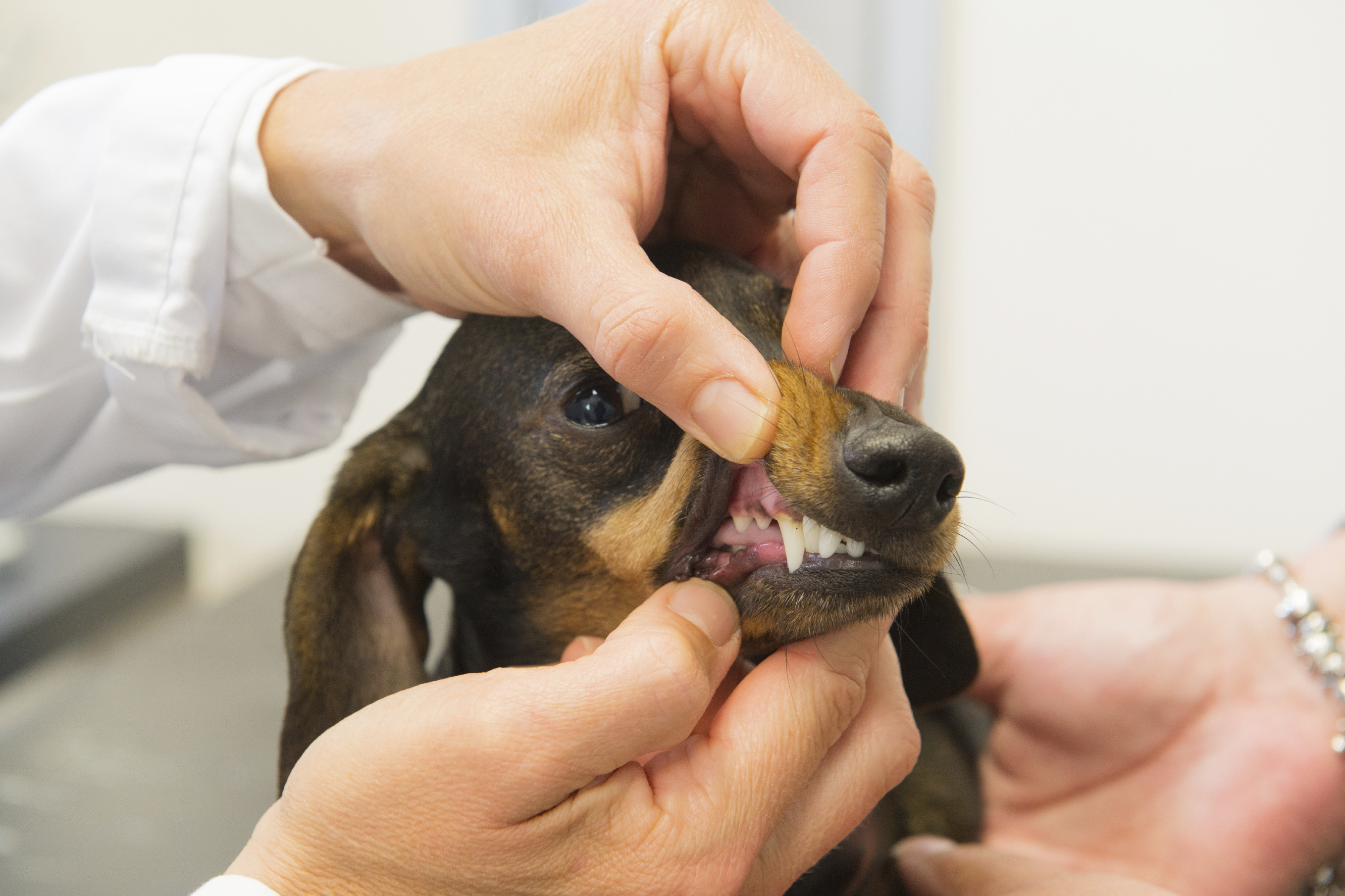This company wants to use dog DNA to help cure cancer
Embark's doggie DNA kits can reveal a lot about a pup, and perhaps even more about common diseases

Could dogs hold a clue to the next big advance in cancer research? The cofounders behind a startup called Embark believe the answer is yes, and they're out to prove it. By collecting and analyzing at-home DNA kits from thousands of pups, Embark hopes to use doggie data to shed new light on human disease.
Brothers Adam and Ryan Boyko cofounded Embark along with two others. They point out that dogs and humans often suffer from many of the same diseases. Examining how these diseases behave in canines could lead to a better understanding of human ailments, and maybe even suggest new avenues for therapeutics. "We've seen time and again that the genes that we identify in dogs — particularly disease genes — are the same gene pathways and in some cases the same mutations as we see in human disorders," says Adam, the company's chief science officer.
The Austin, Texas-based company's main offering is a DNA kit that can tell owners a lot about their dog's genetic history. Consumer DNA testing for dogs certainly isn't a new concept; an owner who wants to know whether her French bulldog has a bit of pug in him can already turn to popular services like DNA My Dog or Wisdom Panel. But Embark claims to take it a step further: Using one small sample of dog drool, its test screens for more than 200,000 genetic markers, including health information, like a dog's risk for more than 100 medical conditions. Owners will also learn about dozens of physical traits, like how much a puppy is likely to shed and how big it's likely to grow, as well as breed composition and where their dog's lineage can be traced geographically.
The Week
Escape your echo chamber. Get the facts behind the news, plus analysis from multiple perspectives.

Sign up for The Week's Free Newsletters
From our morning news briefing to a weekly Good News Newsletter, get the best of The Week delivered directly to your inbox.
From our morning news briefing to a weekly Good News Newsletter, get the best of The Week delivered directly to your inbox.
What really sets the company apart, however, is what it wants to do with the information it collects from customers' pets. Essentially, Embark will be amassing a giant doggie data set that can be used for research into canine genetics and to learn more about canine health and behavior.
"Instead of having to rely on one NIH [National Institutes of Health] or NSF [National Science Foundation] study at a time, where you're recruiting subjects and spending a lot of money to discover one or two new things over the course of a year or two … we [will] have this ability to drive discovery a lot faster," said Ryan.
Then there's the payoff when it comes to people. Though dogs may not be the first animal to come to mind when thinking about gaining human health insights, dog research has already helped us better understand diseases like Duchenne muscular dystrophy and narcolepsy. Dogs were used in a number of key diabetes and anemia studies in the 1920s, and are still the preferred model animal for hemophilia research, according to The Verge. As Emily Anthers wrote about the canine research advantage in Bloomberg, "Thanks to generations of selective breeding, a small number of genes explains much of the variation between individual dogs, which means it's often easier to identify the genes responsible for complex traits in dogs than it is in humans."
Adam believes the next frontier is cancer. "Lots of dogs get cancers," he says. "Different cancers are more prevalent in different breeds, and we know there's a genetic basis. And now that we're starting to do tumor profiling in people and starting to look at them in dogs, we can see there are tumors that show very similar signatures, suggesting the same kind of pathways."
A free daily email with the biggest news stories of the day – and the best features from TheWeek.com
The two brothers see Embark as a natural combination of their individual talents and experiences. Adam is an assistant professor in biomedical sciences at the Cornell University College of Veterinary Medicine, where he focuses on dog genetics. Last fall, he and his team laid to rest a long-running debate over where and when dogs were domesticated. The answer? Central Asia, near India or Nepal, around 15,000 years ago.
Ryan has a background in big data, which he's put to work in fields like public health and ecology. He's also logged time on the front lines of Adam's research efforts, spending much of the last 10 years traveling the world to collect samples from dogs in such far-flung locales as Croatia, India, Peru, and Uganda. Naturally, the brothers are both dog owners — Harley for Ryan and Penny for Adam. "They are intimately involved in the quality control of the platform," Adam says with a chuckle.
To be viable, Embark will need dogs. Lots of dogs. "If we could start getting data sets now with thousands and thousands, or tens of thousands of dogs, that will be an order of magnitude more information than we've had in any other study," Adam says. His study last year — the largest to date on worldwide canine genetic diversity — was based on around 5,000 dogs. "Given that there's 70 million dogs in America, I think that's actually quite feasible."
Embark DNA kits will go on sale for $199 later this spring, but are available for pre-order now.
Alexis Boncy is special projects editor for The Week and TheWeek.com. Previously she was the managing editor for the alumni magazine Columbia College Today. She has an M.F.A. from Columbia University's School of the Arts and a B.A. from the University of Virginia.
-
 The 8 best spy movies of all time
The 8 best spy movies of all timethe week recommends Excellence in espionage didn’t begin — or end — with the Cold War
-
 Why scientists want to create self-fertilizing crops
Why scientists want to create self-fertilizing cropsUnder the radar Nutrients without the negatives
-
 Are pesticides making florists sick?
Are pesticides making florists sick?Under the Radar Shop-bought bouquets hide a cocktail of chemicals